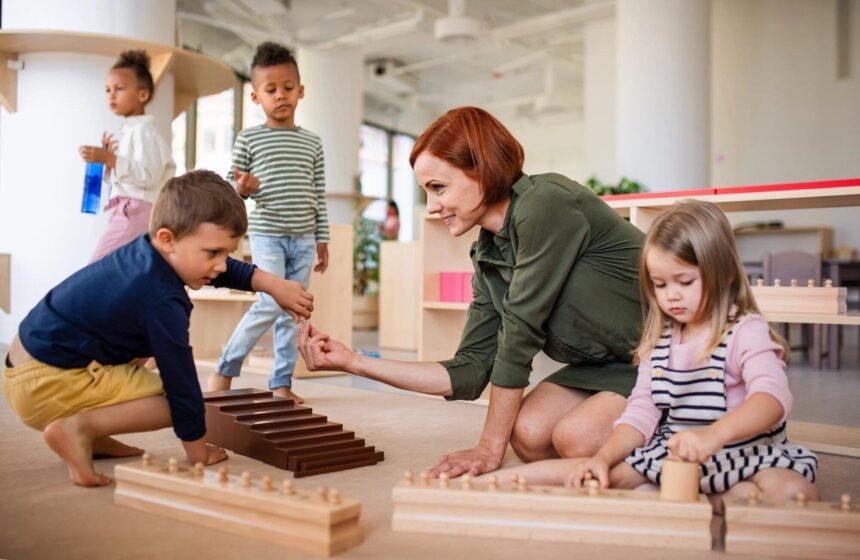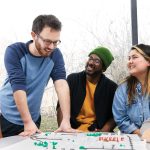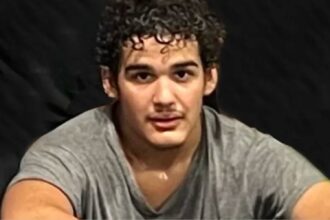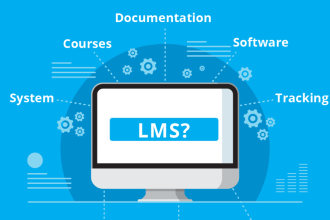Have you ever wondered how some children seem so motivated to learn on their own? In many cases, their education plays a big role.
Montessori education is a special method that helps children become more independent in their learning. It supports kids in finding their interests, making choices, and learning at their own pace. This approach works with the child’s natural desire to explore and grow.
Let’s explore how Montessori education encourages curiosity, self-direction, and confidence in every stage of a child’s development.
Freedom Within Limits
Montessori classrooms are designed to offer freedom, but also structure. Children can choose their activities, but they must follow certain rules. This mix helps them learn how to manage their time and take responsibility for their choices. They begin to understand that freedom comes with personal responsibility.
When kids are trusted to make decisions, they learn to think for themselves. This is an important part of becoming an independent learner. The classroom environment is calm and respectful, which helps children focus and feel safe.
Teachers, called guides, do not tell children what to do all the time. Instead, they help when needed and observe quietly. Children learn to solve problems and work through challenges on their own. This builds confidence and self-control, which are key skills for learning independently.
Encouraging Curiosity
Children are naturally curious. Montessori education supports this by letting them explore topics they find interesting. Instead of everyone learning the same thing at the same time, each child follows their interests. This kind of learning makes school more exciting and meaningful.
Materials in a Montessori classroom are designed to catch the child’s attention. They are often colorful, hands-on, and made from real-world items. These tools encourage kids to ask questions and find answers on their own.
Children are curious and often focus for longer periods. They learn not from obligation, but from desire. Montessori learning nurtures this instinct, helping kids become lifelong learners eager to understand the world.
Curiosity is a powerful driver of independent learning. When children learn through exploration, they gain a sense of pride in their discoveries. This builds confidence and supports self-growth.
Self-Paced Learning
In traditional schools, all children often follow the same schedule. But in Montessori classrooms, each child learns at their own pace. This means they can spend more time on things they find hard and move quickly through what they already know.
When children learn this way, they don’t feel pressure to keep up with others. They also don’t get bored waiting for classmates to catch up. This freedom helps children become more aware of their own strengths and needs.
Montessori teachers keep track of each child’s progress through careful observation. They offer new challenges at the right time, so learning stays exciting and just the right level of difficulty. Children stay interested because lessons match their level of readiness.
Self-paced learning allows kids to take charge of their education. They make choices, plan their day, and learn how to reach their goals. This teaches skills they will use for the rest of their lives. It also builds independence and self-motivation.
Confidence Through Success
Montessori education gives children many chances to succeed on their own. Every activity is designed to teach one clear skill. Children can see when they have done something right because the materials give instant feedback.
This builds confidence. When children complete a task by themselves, they feel proud. They don’t always need a teacher to say, “Good job,” because the success feels real. This kind of confidence makes them want to try new things.
Confidence grows slowly through small wins. Montessori classrooms are calm and patient places. Children learn that mistakes are okay and part of learning. This helps them take risks and try again when they don’t succeed right away.
As their confidence grows, children become more independent. They learn that they can solve problems and trust their own thinking. These skills support learning both in school and in life.
The Montessori homeschool curriculum also gives parents the tools to build this same confidence at home in a natural and joyful way.
Mixed-Age Classrooms
Montessori classrooms group children of different ages together. This allows younger kids to learn by watching older ones. Older children get to practice leadership and teaching skills, which also deepens their understanding.
In this setting, children don’t compete with each other. Instead, they learn to help and support one another. This creates a sense of community and shared learning. Children feel more relaxed and ready to learn.
Because of the age mix, children stay in the same classroom for a few years. They grow familiar with the people and routines. This helps them feel safe and confident, which supports independent learning.
Everyone learns at their own pace, but with others around to guide or follow. This builds both independence and social skills. Children learn how to ask for help, offer help, and also try things on their own.
Mixed-age classrooms offer many chances to lead, learn, and grow. These experiences help children become strong, curious learners.
The Role of the Guide
In Montessori, the teacher is called a “guide.” This is because they help the child find their own way instead of leading every step. Guides observe closely and gently direct children toward the next challenge when they are ready.
They don’t interrupt or control every moment. Instead, they trust the child’s ability to learn on their own. This trust builds respect and self-confidence in the student. Children feel that their ideas and efforts are valued.
The guide creates an environment where learning is joyful and full of discovery. They introduce lessons at the right time and then step back. This gives children space to practice, explore, and take ownership of their learning.
Because the guide doesn’t solve every problem, children learn to think, plan, and act independently. They are free to ask questions, make mistakes, and try again. This way, learning becomes a personal journey full of meaning.
Consider Montessori Education for an Independent Learning Experience
Montessori education builds independent learners by trusting children and helping them take charge of their learning. Through curiosity, self-paced learning, confidence, and support, children grow into self-motivated individuals. Each stage of development is respected, and children are encouraged to follow their interests.
With guides, hands-on materials, and a supportive environment, kids develop skills beyond the classroom. They learn to think, explore, and solve problems independently, preparing them for a successful future.
Explore our blog for more articles on other topics.















